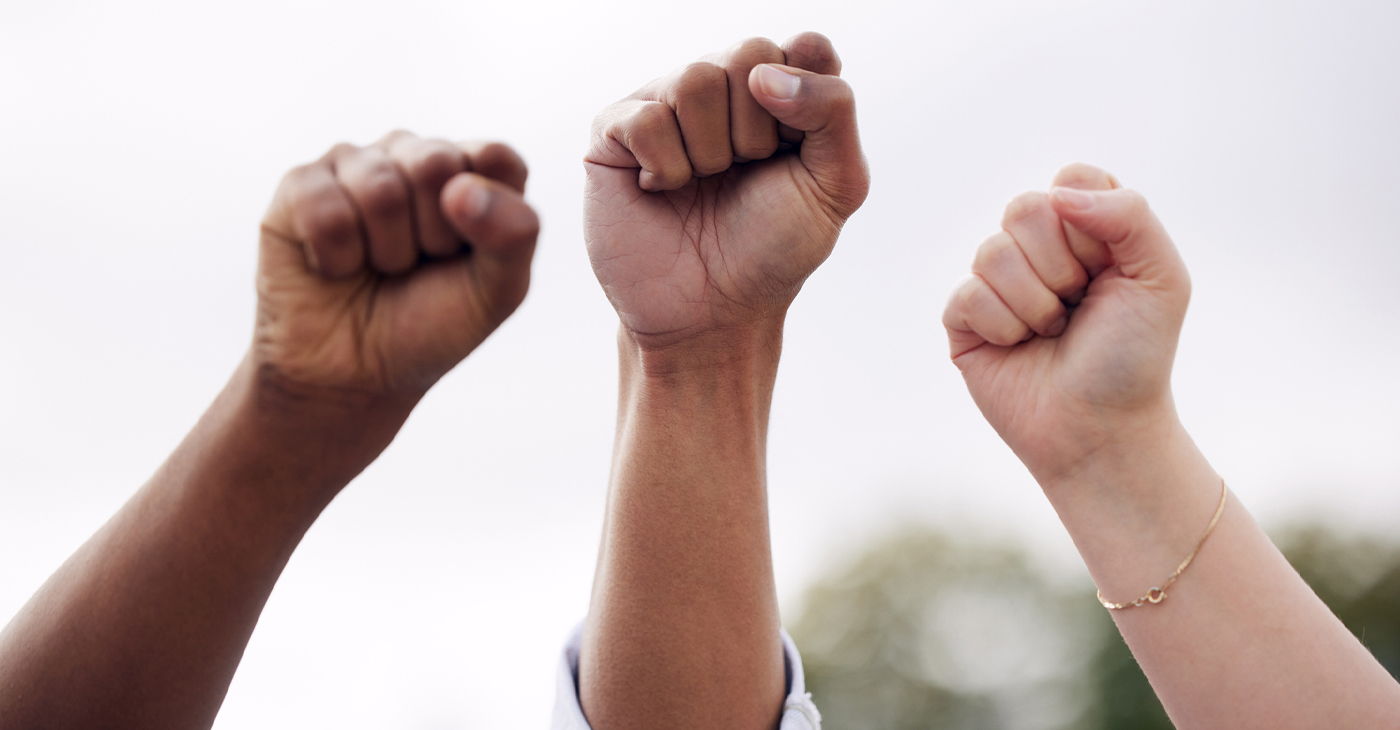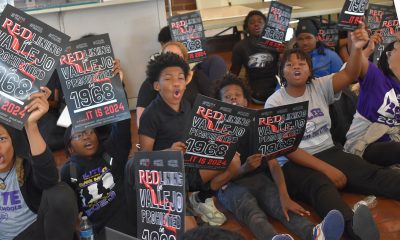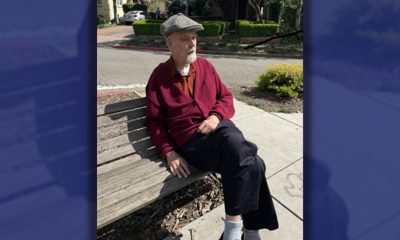Commentary
COMMENTARY: Black Millennials Embrace the Struggle and Message of Rapper 21 Savage
NNPA NEWSWIRE — Although 21 Savage has lived in the U.S. for the past 14 years, U.S. Immigration and Customs Enforcement (ICE) is attempting to expedite his deportation back to the United Kingdom. Savage was detained but was able to post bail from ICE last week.
By Black Millennial Voices: Malika Elmengad and Franklin Chavis
Becoming a well-known hip-hop rapper involves displaying creative genius and talent on the stage and in recording studios. Unfortunately, for some young aspiring hip-hop artists, unjust confrontations with law enforcement appear to be inevitable. This is currently the case with the Grammy-nominated rapper professionally known as 21 Savage.
Based now in Atlanta, Georgia, 21 Savage was born in London in the United Kingdom on October 22, 1992. The 26-year-old talented rapper’s name at birth was Sheyaa Bin Abraham-Joseph. He immigrated legally to the United States as a minor back in 2005 with his family.
Although 21 Savage has lived in the U.S. for the past 14 years, U.S. Immigration and Customs Enforcement (ICE) is attempting to expedite his deportation back to the United Kingdom. Savage was detained but was able to post bail from ICE last week.
Yet, in the aftermath of being released from ICE detention and appearing in a taped television show interview on ABC’s Good Morning America, police officials in Southern Georgia’s Liberty County re-arrested 21 Savage and charged him with “felony theft” because he did not perform at a paid gig in Georgia 3 years ago.
The fact of the matter is that 21 Savage actually turned himself into the Liberty County Sherriff’s office and was immediately released on another bail posting. According to one of his attorneys, Abby Taylor, “This is really a civil contract dispute. We are optimistic that it will be resolved to the satisfaction of all of the parties and dismissed.”
From the perspective of millions of Black American millennials across the nation, the unjust ordeals that 21 Savage is facing are all symptomatic and representative of racism in the U.S. immigration system combined with long-standing cultural and racial profiling of hip-hop artists by the so-called criminal justice system.
The constant run-ins that Tupac Shakur and DMX and many other hip-hop artists have had with the police are on point and relevant to what 21 Savage is now enduring. Some news reports have revealed that ICE officials were trying to intimidate and force 21 Savage to give up his fight to remain in the U.S. Immigration procedures could possibly lead to both his unjust deportation and a 10-year ban from reentering the country.
But it is good to witness that 21 Savage is keeping his faith strong, hiring good experienced defense lawyers, and that there is a growing vocal and visible support for him now coming from hip-hop icons like Jay Z, Diddy and Meek Mills.
Attorney Charles Kuck, one of the other lawyers representing 21 Savage, stated, “[21 Savage] never hid his immigration status.” Attorney Kuck also said that he has a pending U visa application that could permit him to remain in the U.S. 21 Savage also has two U.S. born children whom he supports, which could make him eligible to stay here and to continue his growing career as a gifted artist and musician.
Attorney Kuck concluded, “In fact, his contributions to local communities and schools that he grew up in are the examples of the type of immigrant we want in America.”
When the New York Times recently asked 21 Savage if he felt a responsibility to speak up about his circumstances. He responded in a classic 21 Savage manner spitting truth to power: “Yeah, I feel a responsibility. My situation is important ’cause I represent poor black Americans and I represent poor immigrant Americans. You gotta think about all the millions of people that ain’t 21 Savage that’s in 21 Savage shoes.”
Thus, 21 Savage speaks for all of us across the nation who are young and fed up with the mass incarcerations, intimidations, and racial oppression. His voice is our voice. Hip-hop is not going anywhere. We embrace the courage and the creative genius of 21 Savage today and into the future.
Malika Elmengad and Franklin Chavis are Co-Founders of Black Millennial Voices, a national and global advocacy group of millennials who are now writing and reporting for the NNPA: The Black Press of America. They can be reached at www.BlackMillennialVoices.com
Commentary
Opinion: Lessons for Current Student Protesters From a San Francisco State Strike Veteran
How the nation’s first College of Ethnic studies came about, bringing together Latino, African American and Asian American disciplines may offer some clues as to how to ease the current turmoil on American college campuses over the Israel-Hamas war. After the deadline passed to end the Columbia University encampment by 2 p.m. Monday, student protesters blockaded and occupied Hamilton Hall in a symbolic move early Tuesday morning. Protesters did the same in 1968.

By Emil Guillermo
How the nation’s first College of Ethnic studies came about, bringing together Latino, African American and Asian American disciplines may offer some clues as to how to ease the current turmoil on American college campuses over the Israel-Hamas war.
After the deadline passed to end the Columbia University encampment by 2 p.m. Monday, student protesters blockaded and occupied Hamilton Hall in a symbolic move early Tuesday morning.
Protesters did the same in 1968.
That made me think of San Francisco State University, 1968.
The news was filled with call backs to practically every student protest in the past six decades as arrests mounted into hundreds on nearly two dozen campuses around the country.
In 1970, the protests at Kent State were over the Vietnam War. Ohio National Guardsmen came in, opened fire, and killed four students.
Less than two weeks later that year, civil rights activists outside a dormitory at Jackson State were confronted by armed police. Two African American students were killed, twelve injured.
But again, I didn’t hear anyone mention San Francisco State University, 1968.
That protest addressed all the issues of the day and more. The student strike at SFSU was against the Vietnam war.
That final goal was eventually achieved, but there was violence, sparked mostly by “outside agitators,” who were confronted by police.
“People used the term ‘off the pigs’ but it was more rally rhetoric than a call to action (to actually kill police),” said Daniel Phil Gonzales, who was one of the strikers in 1968.
Gonzales, known as the go-to resource among Filipino American scholars for decades, went on to teach at what was the positive outcome of the strike, San Francisco State University’s College of Ethnic Studies. It’s believed to be the first of its kind in the nation. Gonzales recently retired after more than 50 years as professor.
As for today’s protests, Gonzales is dismayed that the students have constantly dealt with charges of antisemitism.
“It stymies conversation and encourages further polarization and the possibility of violent confrontation,” he said. “You’re going to be labeled pro-Hamas or pro-terrorist.”
That’s happening now. But we forget we are dealing not with Hamas proxies. We are dealing with students.
Gonzales said that was a key lesson at SF State’s strike. The main coalition driving the strike was aided by self-policing from inside of the movement. “That’s very difficult to maintain. Once you start this kind of activity, you don’t know who’s going to join,” he said.
Gonzales believes that in the current situation, there is a patch of humanity, common ground, where one can be both pro-Palestine and pro-Israel. He said it’s made difficult if you stand against the belligerent policies of Benjamin Netanyahu. In that case, you’re likely to be labeled antisemitic.
Despite that, Gonzales is in solidarity with the protesters and the people of Gaza, generally. Not Hamas. And he sees how most of the young people protesting are in shock at what he called the “duration of the absolute inhumane kind of persecution and prosecution of the Palestinians carried out by the Israeli government.”
As a survivor of campus protest decades ago, Gonzales offered some advice to the student protesters of 2024.
“You have to have a definable goal, but right now the path to that goal is unclear,” he said.
About the Author
Emil Guillermo is a journalist and commentator. A veteran newsman in TV and print, he is a former host of NPR’s “All Things Considered.”
Activism
Oakland Post: Week of May 1 – 7, 2024
The printed Weekly Edition of the Oakland Post: Week of May 1 – 7, 2024

To enlarge your view of this issue, use the slider, magnifying glass icon or full page icon in the lower right corner of the browser window. ![]()
Activism
Oakland Post: Week of April 24 – 30, 2024
The printed Weekly Edition of the Oakland Post: Week of April 24 – 30, 2024

To enlarge your view of this issue, use the slider, magnifying glass icon or full page icon in the lower right corner of the browser window. ![]()
-

 Community3 weeks ago
Community3 weeks agoFinancial Assistance Bill for Descendants of Enslaved Persons to Help Them Purchase, Own, or Maintain a Home
-

 Activism4 weeks ago
Activism4 weeks agoOakland Post: Week of April 3 – 6, 2024
-

 Business3 weeks ago
Business3 weeks agoV.P. Kamala Harris: Americans With Criminal Records Will Soon Be Eligible for SBA Loans
-

 Activism3 weeks ago
Activism3 weeks agoOakland Post: Week of April 10 – 16, 2024
-

 Community3 weeks ago
Community3 weeks agoAG Bonta Says Oakland School Leaders Should Comply with State Laws to Avoid ‘Disparate Harm’ When Closing or Merging Schools
-

 Community2 weeks ago
Community2 weeks agoRichmond Nonprofit Helps Ex-Felons Get Back on Their Feet
-

 Community2 weeks ago
Community2 weeks agoOakland WNBA Player to be Inducted Into Hall of Fame
-

 Community2 weeks ago
Community2 weeks agoRPAL to Rename Technology Center for Retired Police Captain Arthur Lee Johnson






















































1 Comment